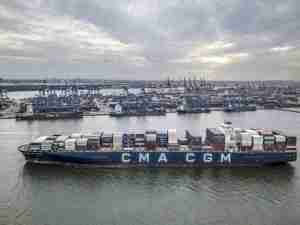- Euronav balance sheet bolstered by sale & leaseback and new financing facility
- Award for FSO for five-year contract starting Q3 2017
- Further growth via addition of 2 VLCC resales delivered to fleet in January 2017
- Long term time charter (7 years) signed for two new 1C ice-class Suezmax vessels to be built
- 2017 outlook will see challenges from the peak of new vessel supply and production cuts but medium term prospects remain encouraging
Euronav announces final results 2016
posted by AJOT | Mar 16 2017 at 09:53 AM | Maritime
HIGHLIGHTS
Year of two contrasting halves: robust fundamentals drove strong market until June but increased vessel supply aggravated seasonal trading patterns until Q4








